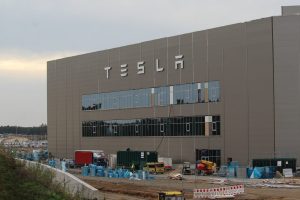- 🚗 Toyota emphasizes a new gas engine project as a “practical” approach to carbon neutrality.
- 🚀 The company has a history of advocating for hydrogen technology and continued gas vehicle production alongside EVs.
- 📈 In November, Toyota increased its 2025 battery-electric vehicle (BEV) production forecast.
- 🔍 A Toyota chairman mentions a project for high-performance internal combustion engines (ICE) to contribute to carbon neutrality goals.
- 🌐 The chairman, Akio Toyoda, underscores the role of engines in achieving carbon neutrality and emphasizes the need to refine engine technology.
- 🛠️ The project aims to promote engine development and preserve jobs in ICE manufacturing, acknowledging the significant workforce in Japan’s automotive sector.
- ⚡ Toyota defends a gradual transition to battery electric tech, citing the demand for critical minerals, lack of charging infrastructure, and affordability as barriers to widespread BEV adoption.
- 📑 A document from Toyota highlighting barriers to BEV adoption drew a response from Tesla’s Vice President of Investor Relations, debunking the claims.
- 🌐 A New York Times report in 2021 revealed Toyota’s lobbying against an aggressive electrification strategy in global efforts to reject stricter regulations.
- 🌍 Toyota’s slow-paced approach to electrification has received defense from the White House.
In a dynamic era of automotive evolution, Toyota takes a strategic turn by emphasizing a new gas engine project as a “practical” approach towards achieving carbon neutrality. This blog post delves into Toyota’s recent moves, exploring the history, challenges, and future implications of their stance on internal combustion engines (ICE) amidst the electrification wave.
Toyota’s Gas Engine Project: A Practical Path
Toyota, known for its innovative contributions to the automotive industry, has set its sights on a new gas engine project. Positioned as a “practical” means to reach carbon neutrality, this initiative is a testament to the company’s commitment to balancing tradition with innovation. Let’s unravel the layers of Toyota’s strategy and the insights shared by key figures within the company.
A History of Advocacy: Hydrogen and Gas Vehicles
Toyota’s journey in advocating for a diversified approach to green mobility traces back to its consistent support for hydrogen technology and the continued production of gas vehicles alongside electric vehicles (EVs). This historical context sets the stage for understanding Toyota’s current stance and the rationale behind their latest gas engine project.
Charting the Electric Course: Increased BEV Production Forecast
In a strategic move towards the electric future, Toyota boosted its 2025 battery-electric vehicle (BEV) production forecast in November. This adjustment reflects the company’s acknowledgment of the growing significance of EVs in the automotive landscape. The interplay between traditional gas engines and cutting-edge electric technology becomes more pronounced as Toyota charts its electric course.
Chairman’s Vision: High-Performance ICE for Carbon Neutrality
Akio Toyoda, Toyota’s chairman, emerges as a central figure in the gas engine project narrative. While details about the project remain undisclosed, Toyoda emphasizes the pivotal role of high-performance internal combustion engines (ICE) in the pursuit of carbon neutrality. His vision underscores the pragmatic importance of refining engine technology for sustainable progress.
Preserving Jobs and Acknowledging Workforce Significance
The gas engine project isn’t solely about technology; it’s a strategic move to preserve jobs in the ICE manufacturing sector. Toyoda acknowledges the substantial workforce in Japan’s automotive industry, highlighting the critical role these individuals play in shaping the nation’s future. The project becomes not just a technological initiative but a commitment to the people behind the engines.
Defending a Gradual Transition: Barriers to BEV Adoption
Toyota defends its gradual transition to battery electric tech, citing specific barriers to widespread BEV adoption. The company points to the demand for critical minerals needed for EV batteries, the lack of charging infrastructure, and concerns about affordability. These challenges, according to Toyota, necessitate a balanced and pragmatic approach to the electrification journey.
Responding to Critiques: A Document and Tesla’s Rebuttal
In a notable exchange, a document from Toyota highlighting barriers to BEV adoption drew a response from Tesla’s Vice President of Investor Relations, debunking the claims. This exchange adds a layer of transparency to the ongoing discourse between traditional automakers and the disruptors in the electric vehicle space.
Global Lobbying and White House Defense
The New York Times report in 2021 unveils Toyota’s lobbying efforts against aggressive electrification strategies globally. The company’s slow-paced approach finds defense from the White House, signaling the broader implications of automotive policies on a global scale.





